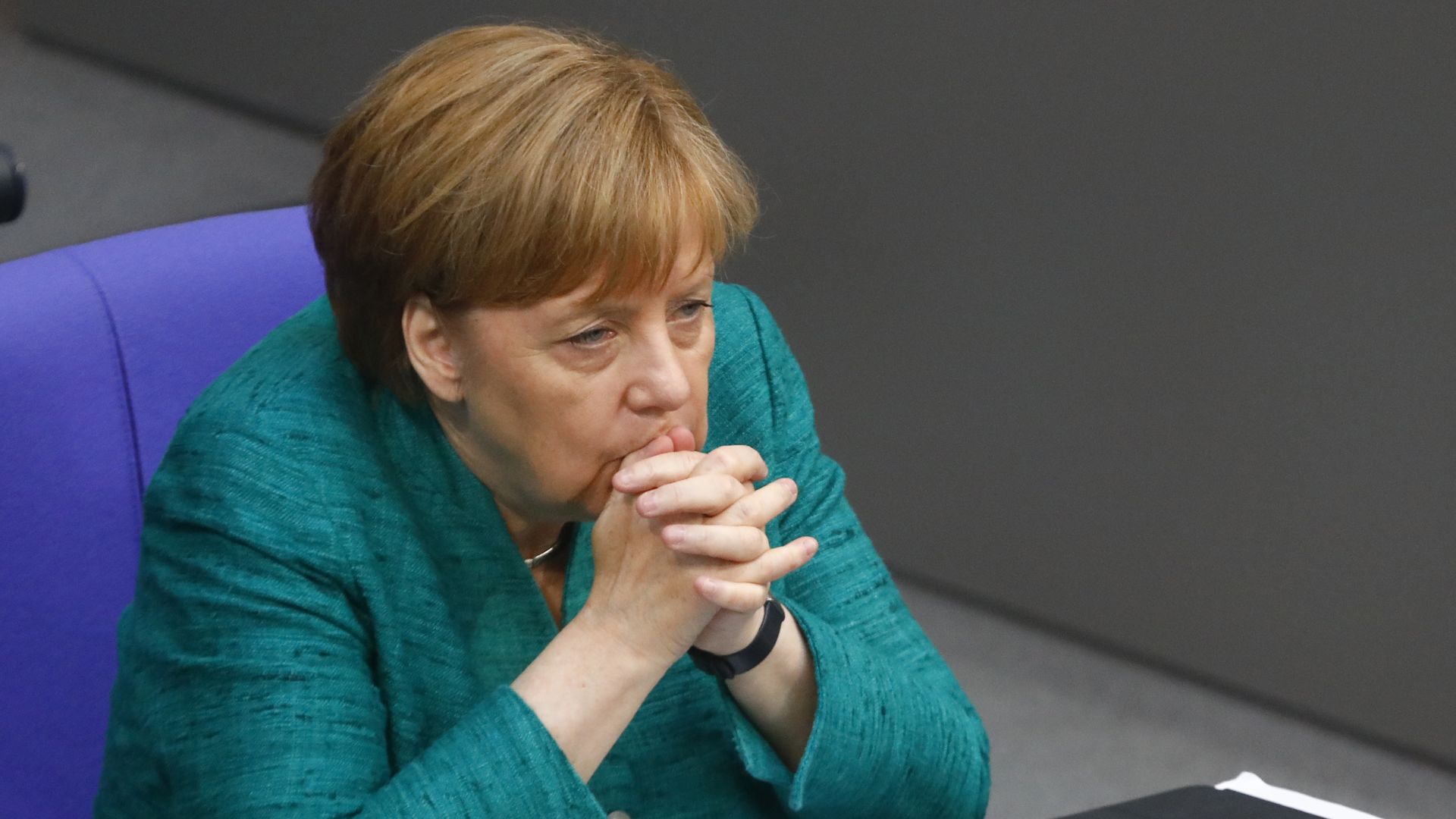Updated Jul 9, 2018 - Politics & Policy
Expert VoicesDespite Trump’s attacks on NATO members, U.S. support also down
Add Axios as your preferred source to
see more of our stories on Google.

German Chancellor Angela Merkel after giving a declaration at the Bundestag ahead of the upcoming EU and NATO summits on June 28, 2018, in Berlin, Germany. Photo: Michele Tantussi via Getty Images
